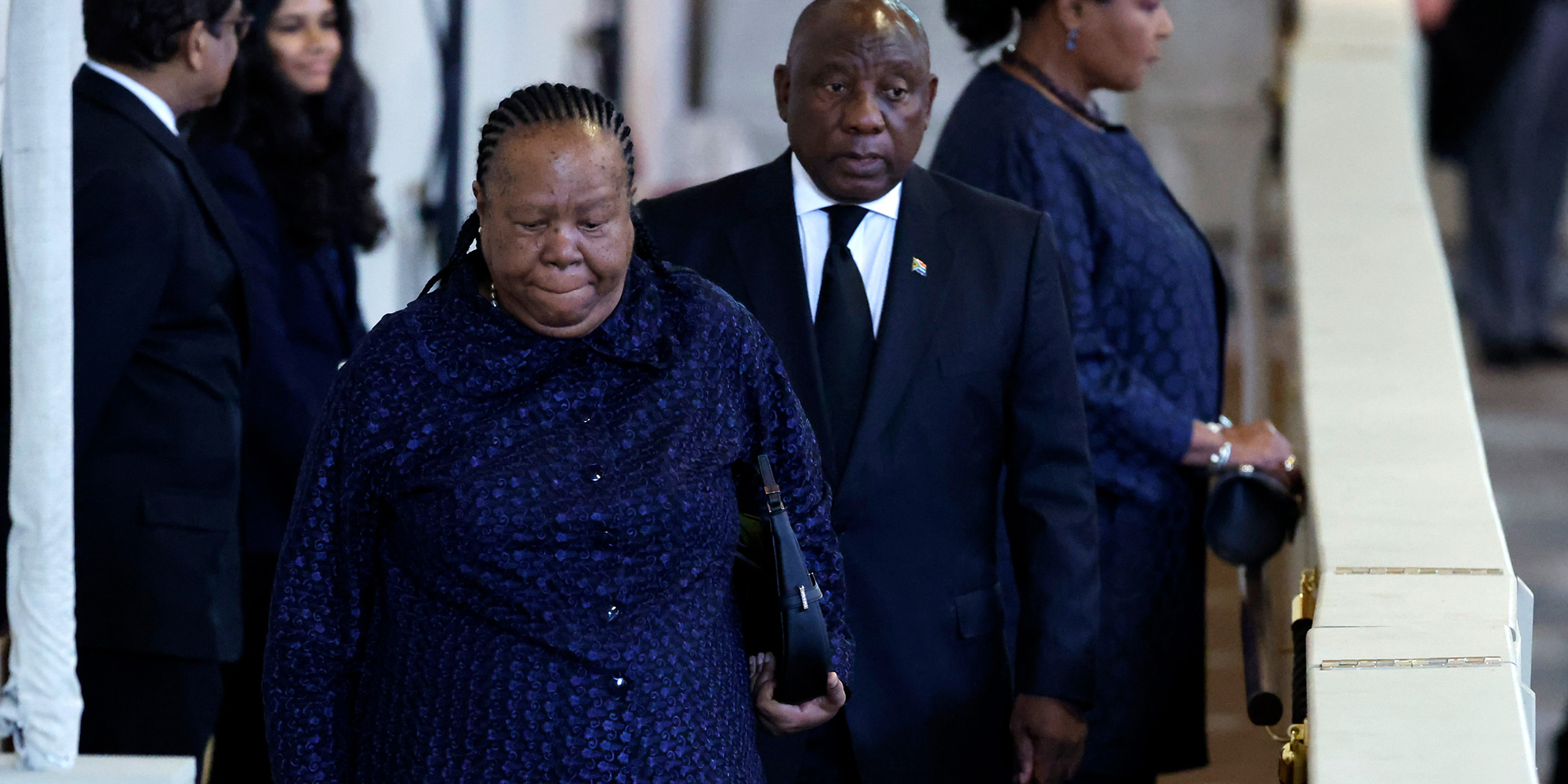The “U.S.- South Africa Bilateral Relations Review Act” is expected also to pass a more formal roll call vote in the committee on Wednesday and then to move to the full House of Representatives.
The bill would also require the Administration to report to Congress “explicitly stating whether South Africa has engaged in activities that undermine United States national security or foreign policy interests.”
Republican John James and Democrat Jared Moskowitz introduced the bill in February. It says that in contrast to its stated non-alignment, the ANC government has been siding with “malign actors”, building military and political ties with Russia and China and supporting Hamas, designated by the US as a Foreign Terrorist Organisation and a known proxy of Iran.
On Wednesday, James added an amendment which also criticised International Relations and Cooperation Minister Naledi Pandor for urging pro-Palestinian activists to demonstrate outside the Pretoria embassies of the five governments which support Israel in its war against Hamas in Gaza.
She did not name the countries but was understood to be referring to the US, UK, Germany, France and Canada.
James’s amendment was adopted by the committee but an amendment proposed by Republican Scott Perry, requiring the Administration to end all foreign aid to South Africa, was defeated.
Perry said that “South Africa’s foreign policy has long ceased to reflect its stated stance of nonalignment, and now directly favors the PRC, (China) the Russian Federation, and Hamas, a known proxy of Iran, and thereby undermines United States national security and foreign policy interests. Why then must we continue to send money to a country that clearly hates our allies and consorts with our enemies?”
James opposed Perry’s amendment, saying the US should not cut off its millions of dollars of health assistance to SA.
Anthony Carroll, retired adjunct professor at Johns Hopkins University, agreed, saying he was pleased to see Perry’s amendment defeated. “This would have stopped Pepfar funding and would have had catastrophic consequences,” he said, referring to the large US programme which has pumped billions of rands into helping SA fight HIV/AIDS for over two decades.
Gregory Meeks, the senior Democrat on the House Foreign Affairs Committee was one of several members of his party who opposed the James bill altogether.
He said he was also concerned with some of Pretoria’s foreign policy stances but the US administration was seeking cooperation with South Africa, a key partner and an economic driver in Africa and the bill would thwart that cooperation.
He noted that SA had cooperated with the US to the extent of ensuring Russian President Vladimir Putin did not attend the BRICS summit in South Africa last year. He also said the James bill would duplicate the review of South Africa’s participation in Agoa – the African Growth and Opportunity Act – which has already been called for in a bill tabled by influential Democrat Senator Chris Coons.
Democrat Jonathan Jackson also opposed the bill saying it did not advance relations and that despite differences the US and SA should seek opportunities for cooperation. SA had a strong commitment to democracy and human rights. But Republican Michael McCaul, chairperson of the House Foreign Affairs Committee supported the bill, citing the joint naval exercise which SA conducted with Russian and China in February 2023.
Despite the progress of the bill in the House of Representatives, the Senate has not yet produced matching legislation and many Congress watchers doubt that it will.
Meanwhile Pandor is in the US trying to repair the damage to relations caused by South African government’s stance on the Russian war against Ukraine and Israel’s war against Hamas.
She has talked to the US Chamber of Commerce and the Carnegie Endowment for International Peace and Howard College in Washington. Observers believe she has generally been doing well – except for one significant blunder.
This came when Dan Baer, Carnegie’s senior vice president for policy research, asked her about BRICS admitting four “authoritarian” governments — Iran, Saudi Arabia, the United Arab Emirates and Egypt — into the group last year..
She disputed his characterisation, asking “who makes these judgments? Because I don’t know, this assessment, that you’re making.” Pressed by Baer on whether Iran is authoritarian, she responded, “I don’t know whether they are an authoritarian regime.” DM
This article is more than a year old
South Africa
Bill that calls for full review of US relations with SA crosses first hurdle in US Congress
A bill that would call on the US government to comprehensively review US relations with South Africa crossed its first legislative hurdle on Wednesday when it passed the House of Representatives Foreign Affairs Committee on a voice vote.





